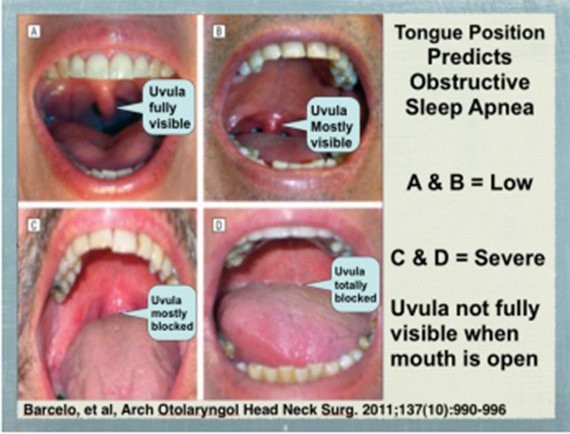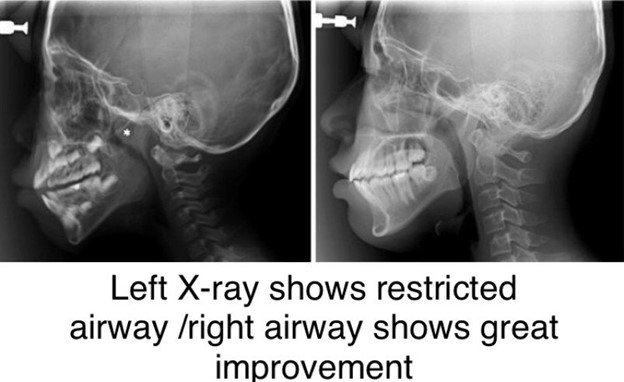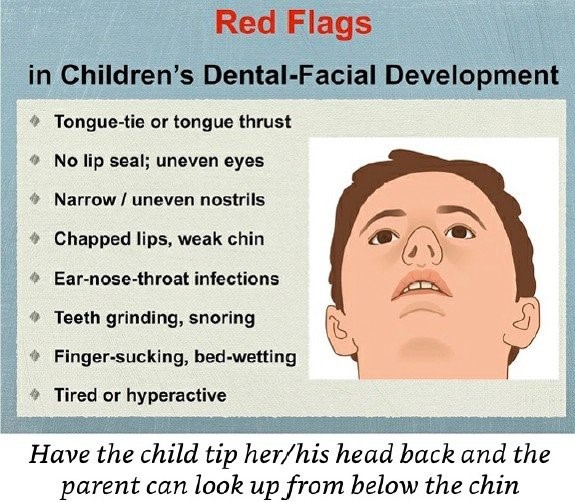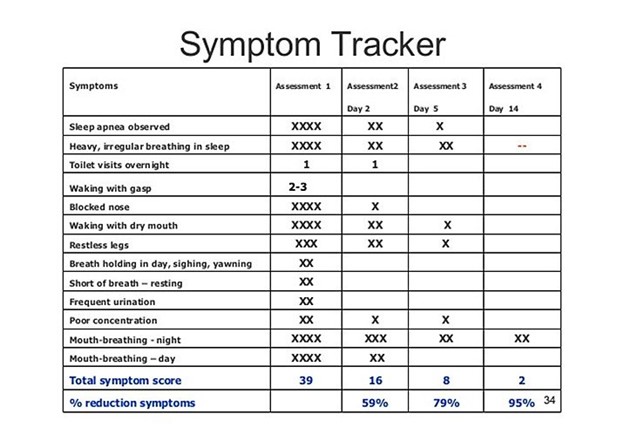Do you have a tired or hyperactive child? Kids can show different signs and symptoms of sleep-related breathing disorders compared to adults. For example, the Apnea-Hypopnea Index (AHI) threshold for adults to be diagnosed with sleep apnea is five events per hour. For kids, as few as one event per hour is generally a concern and may warrant treatment. In addition, kids can show drastically different signs of sleep disturbances compared to adults. The BEARS questionnaire is a simple, effective screening tool for many sleep disorders.
BEARS stands for:
B = Bedtime Issues
E = Excessive Daytime Sleepiness
A = Night Awakenings
R = Regularity and Duration of Sleep
S = Snoring

Sleep Apnea Symptoms in Children
During the night, a child with sleep apnea may:
- Snore loudly on a regular basis
- Have pauses, gasps and snorts, and actually stop breathing. The snorts or gasps may waken them and disrupt their sleep.
- Be restless or sleep in abnormal positions, with their head in unusual positions.
- Sweat heavily during sleep.
- Grind their teeth while they sleep.
- Breathe heavily.
During the day, a child with sleep apnea may:
- Have behavioral, school and social problems.
- Be difficult to wake up.
- Have headaches during the day, but especially in the morning.
- Be irritable, agitated, aggressive and cranky.
- Be so sleepy during the day that they actually fall asleep or daydream.
- Speak with a nasal voice and breathe regularly through the mouth.
Excessively sleepy children can present as either lethargic or hyperactive.
Dr. Karen Bonuck published research in 2012 that followed 11,000 kids for six years. The objective was to examine statistical effects of SDB symptom trajectories from six months to seven years on subsequent behavior. Results of the study revealed “a strong and persistent association between sleep-disordered breathing and diminished IQ … Sleep-disordered breathing increased risk of ADD/ADHD by 50% … Sleep-disordered breathing kids were 40-100% more likely to have neuro-behavioral issues.”
Children should never snore, even when congested. You should never breathe loudly; it should be silent. If a child has apnea, we need to focus on getting his jaws as wide and forward as possible. Depending on age, we can do this with Myobrace® or Healthy Start™ appliances or upper and lower expanders, sometimes followed by Invisalign®. When the upper jaw and lower jaw do not grow to their full potential, the result is a child with a compromised airway. This in turn leads to an adult with severe sleep apnea.
Sleep-Disordered Breathing, Sleep Apnea, and Snoring in Adults
Sufficient rest and sleep are fundamental to your overall health. You need air. You need water. You need food. You need sleep. It is essential that your brain and body have the time they require to re-boot every single day.
Your body, particularly your heart, gathers stress throughout the day. When you finally rest at night, your heart slows itself down and begins to decompress, relieving the stresses it has gathered. Your body needs time to recoup and collect enough energy to tackle another day. In sleep, your brain and body revitalize themselves. Your blood pressure declines, and the pace of age-related diseases slows down. You can curb illnesses such as obesity, hypertension, memory loss and diabetes.

Lack of sleep can burden your heart by placing excessive strain and stress on the muscle. Heart attacks, strokes, cardiovascular disease and, in severe circumstances, death have all been connected to sleep disorders.
Another symptom or result of sleep apnea is bruxism, or teeth-grinding. This is often attributed to stress, but it is now known that bruxism occurs when the body knows it needs oxygen, so to obtain it, your jaw grinds your teeth from side to side to allow more air to enter your airway.
Arlington Smile Center starts considering the airway for every age of patient as soon as they first enter the practice. Often parents do not realize that their kids have sleep-disordered breathing and they are on their way to sleep apnea. Dr. Roca says the key is to catch it early so that you can guide the little ones’ facial growth in the right direction to erase sleep-disordered breathing and avoid sleep apnea all together.

The Weight Connection
A lack of sleep can make you gain weight. Leptin and ghrelin are among the various hormones that are regulated in sleep. Under normal conditions, the leptin hormone tells the body when it’s full, therefore regulating the appetite. Ghrelin tells the brain when you need to eat. Ghrelin levels decrease during sleep. As a result of sleep deprivation, your body thinks you still need sleep, so you are releasing ghrelin. As a result of your sleep deprivation, you eat more since your body’s circadian rhythm is off. This causes your leptin levels to decrease while ghrelin levels stay high. In a properly functioning body, the two hormones are released on and off to regulate normal feelings of hunger. However, in a sleep-deprived individual, ghrelin and leptin levels can be altered. Ghrelin levels will go up and leptin levels go down. The result is increased appetite with larger consumption.
In addition, the stress hormone cortisol increases. When cortisol increases, it can contribute to insulin resistance. Weight gain and insulin resistance can lead to type 2 diabetes. A common thought is to try to lose weight to reduce apnea. This may be counterproductive if you are unable to regulate your hormones. If you have sleep apnea and are overweight, it may be prudent to utilize a CPAP or a dental sleep appliance to improve sleep quality to regulate the hormones, making it more feasible to lose weight and reduce the apnea. There may also be other factors at play, including nasal obstruction, tongue-tie, chronic allergies, etc. The weight is part of the puzzle. Our job as airway-focused dentists is to try to find all the different pieces and put them together.
Snoring Isn’t Just an Annoyance
Often times, snoring is a pre-cursor to a more critical health concern known as sleep apnea. People with sleep apnea experience an obstruction in their airway. Most of the time, they don’t even realize it. The obstruction prevents them from getting oxygen regularly throughout the night. Sleep apnea is a major contributing factor to heart disease. Those suffering from sleep apnea experience elevated blood pressure, which is a key risk factor in acquiring heart disease and strokes.
The outcome of sleep loss can result in serious health concerns and premature death. Sleep deprivation can have negative effects on the function of your brain, increasing stress hormones and leading to depression.

However, we know that we can reduce the severity of sleep apnea by 50 percent with myofunctional therapy. We also can go over ways to improve your apnea with Myobrace or Healthy Start appliances or removable expanders, followed by Invisalign to help make the roof of your mouth wider and your jaws more forward. At the very least, even if you have only mild sleep apnea, being fitted with an oral appliance can result in the reduction or even cessation of snoring. This could be a great gift to your partner!

Snoring and sleep apnea don’t have to fill your nights. Give us a call today at 703-237-7622 for a consultation with Dr. Roca.
